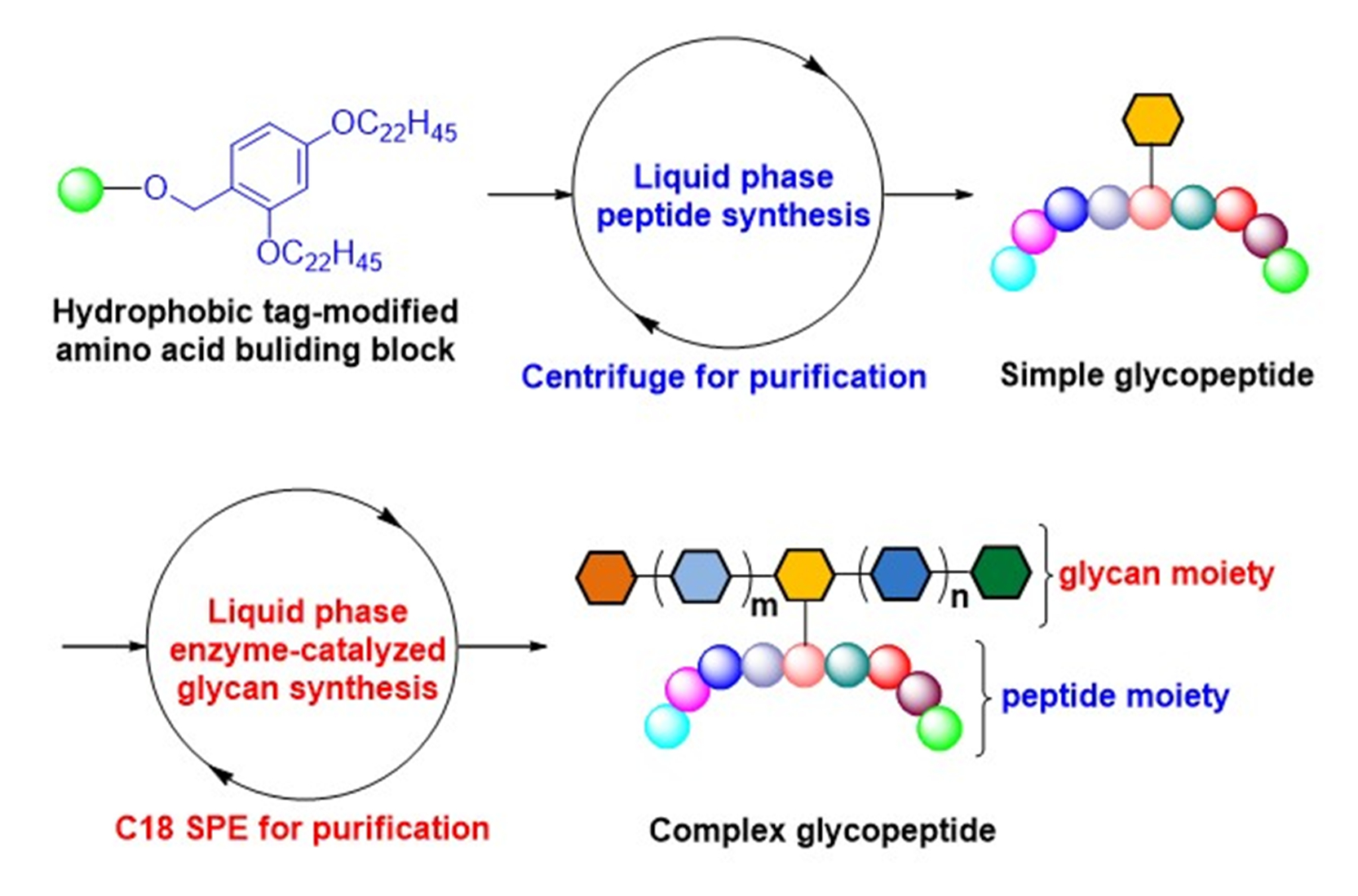Researchers Developed Integrated Chemoenzymatic Approach for Efficient Synthesis of Complex Glycopeptides in Liquid Phase
Protein glycosylation, one of the most common post-translational modifications, is implicated in the occurrence and development of many diseases. The biological functions of glycopeptides are realized by the collaborative effects of both the sugar structure and peptide sequence. However, due to the complexity and diversity of glycopeptides, it is difficult to obtain a wide range of structurally well-defined glycopeptides for biofunctional studies and development of glycopeptide-based drugs.
To solve the above problem, in a study recently published in Journal of the American Chemical Society, a research team led by LI Tiehai from the Shanghai Institute of Materia Medica of the Chinese Academy of Sciences, developed an efficient method for synthesis of various complex glycopeptides.
The researchers performed the liquid-phase synthesis of complex glycopeptides by integrating hydrophobic tag-supported chemical synthesis of peptide with enzyme-catalyzed sugar chain elongation. They adopted a hydrophobic tag to facilitate the peptide chain elongation and rapid separation of the product in liquid phase. After removing the tag, robust glycosyltransferases were utilized for the extension of sugar chain in aqueous phase. Due to the high efficiency of glycosyltransferase-catalyzed reactions, the products were purified by C18 rapid solid-phase extraction (SPE) to afford various glycopeptides. Using this integrated chemoenzymatic approach, the researchers synthesized 21 complex glycopeptides (16 9-mer glycopeptides with different glycan modifications, 4 tumor-related 20-mer MUC1 glycopeptides, and 1 glycosylated 31-mer glucagon-like peptide-1).
"The liquid-phase chemoenzymatic approach greatly accelerates the preparation of various complex glycopeptides. The progress of reactions can be easily monitored in real time and the product can be readily purified both in peptide elongation and glycan extension procedures" said LI, the corresponding author of the study.
This study provides an efficient approach that could be adopted in many laboratories to synthesize complex glycopeptides, which facilitates the progress in exploring the biological functions of glycopeptides and developing glycopeptide-related drugs.

Integrated chemoenzymatic approach to efficiently synthesize complex glycopeptide in the liquid phase (image by LI Tiehai's team)
Link: https://pubs.acs.org/doi/full/10.1021/jacs.2c01819
DOI: https://doi.org/10.1021/jacs.2c01819
Contact:
DIAO Wentong
Shanghai Institute of Materia Medica, Chinese Academy of Sciences
E-mail: diaowentong@simm.ac.cn




